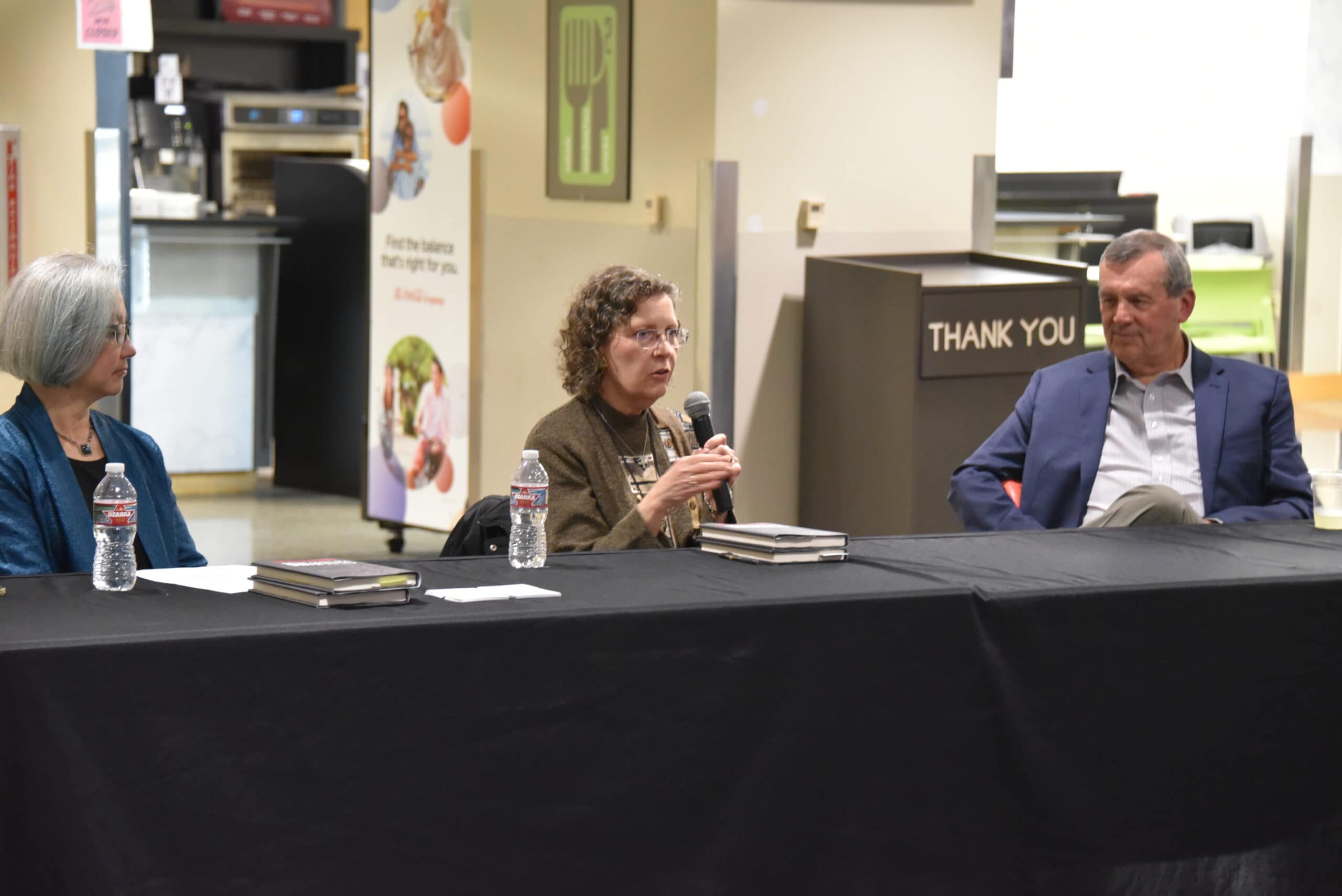View Larger Image

Arkansas Department of Health Assistant TB Controller Sandra Chai, M.D., Arkansas Department of Health Director Jennifer Dillaha, M.D., and author Larry Floyd reflect on Joe Bates.
Image by Nathan Tidwell
UAMS Public Health Innovator Joe Bates, M.D., M.S., Fondly Remembered at Book Signing
| Colleagues and family reflected on the accomplishments and shared memories of Joe Bates, M.D., M.S., during a book signing at the University of Arkansas for Medical Sciences (UAMS) on Dec. 8.
Larry Floyd, who co-authored “Stalking the Great Killer: Arkansas’ Long War on Tuberculosis” with Bates, led a panel discussion that also included Arkansas Department of Health Director Jennifer Dillaha, M.D., and Arkansas Department of Health Assistant TB Controller Sandra Chai, M.D.
Bates, who served as associate dean for public health practice for UAMS’ Fay W. Boozman of College of Public Health, died Sept. 29 at the age of 90.
Tim Nutt, director of the UAMS Historical Research Center, chaired the event, held in the Bruce Commons Area in the Daniel W. Rahn Interprofessional Educational Building.
Mark Williams, Ph.D., dean of the College of Public Health, reflected on the impact Bates had on him.
“It was wonderful to have Dr. Bates as a mentor,” Williams said. “He taught me what it takes to be successful in public health.”
“Dean Williams was very supportive of Joe over these past years,” said Donna Bates, Joe Bates’ wife. “It underscored what the College of Public Health is all about — training people to work in public health. All of these things are what Joe spent his life trying to develop.”

Donna Bates, wife of Joe Bates, expresses her appreciation to those in attendance.Image by Nathan Tidwell
The book details Arkansas’ history with tuberculosis, including the sanatorium near Booneville, which was open from 1910 to 1972, and Bates’ efforts in transforming the treatment of tuberculosis.
“It was a pleasure and a thrill to work with Dr. Bates on this book,” said Floyd, who has taught U.S. history at Oklahoma State University-Oklahoma City since 2012. “We had numerous meetings and discussions, and sometimes we would sit for two or three hours at a time working on this project.”
“Larry taught Joe a lot about the difference between scientific records and what it means to write a historical piece,” said Donna Bates. “The book tells Joe’s story very well.”
Floyd discussed how Bates and another physician collaborated on the idea of using general hospitals instead of sanatoriums in caring for tuberculosis.
“It was a hard sell, but Arkansas became a national leader in tuberculosis treatment,” Floyd said.
Dillaha spoke from her own experiences about how Bates affected her career.
“One of the things that stands out to me about Dr. Bates is his ability to mentor and support the career development of others,” said Dillaha. “As I worked on what I wanted to do with my career, Dr. Bates made an explicit commitment to be my mentor. That was very touching to me.”
Chai spoke about Bates’ humble nature.
“I’m grateful for this book,” Chai said. “I heard many of these stories from him over the years, but he never said how groundbreaking this was in the world of tuberculosis. He always gave the credit to someone else.”
Floyd summarized the group’s feelings about Bates.
“He was so easy to work with, so personable. He wanted excellence in medicine.”